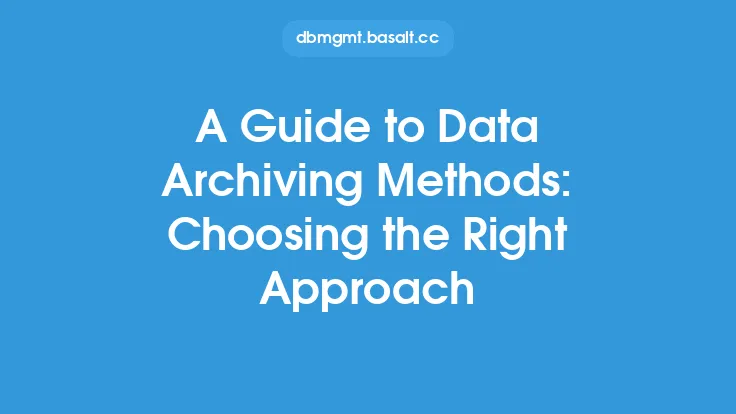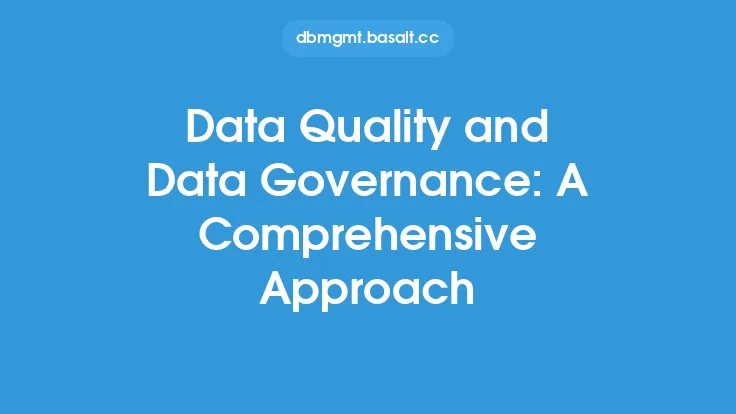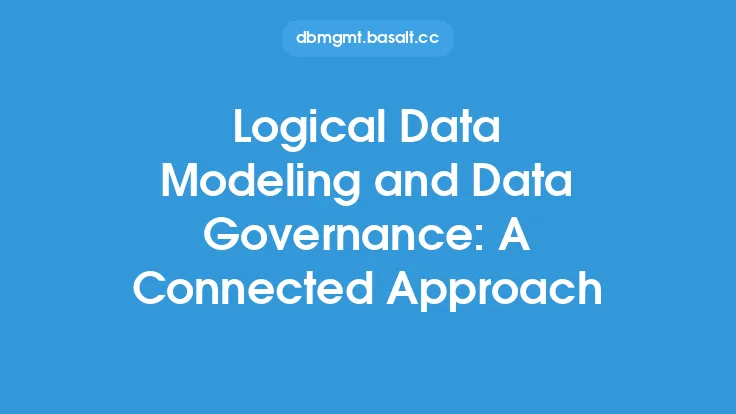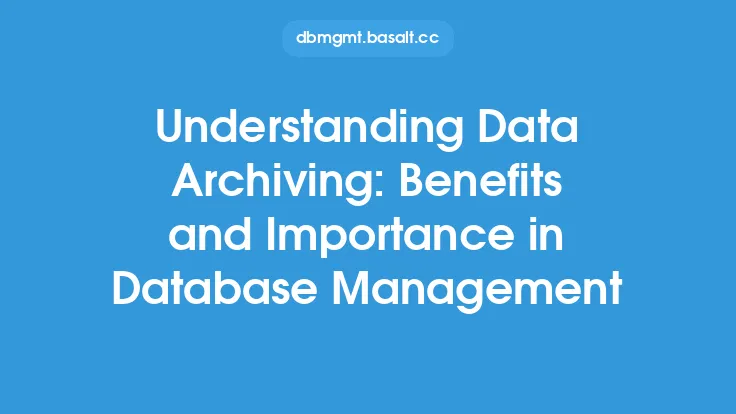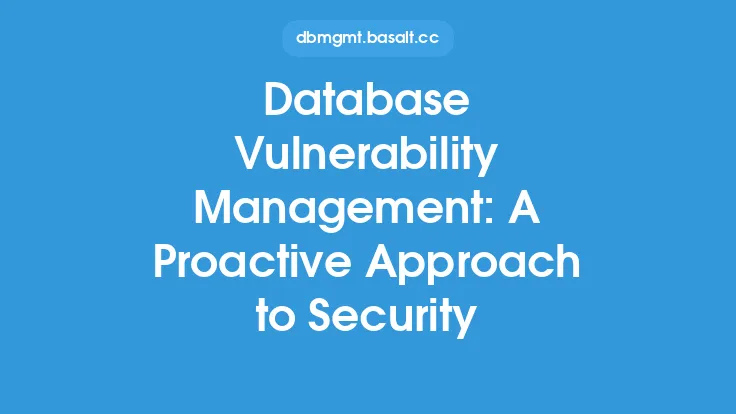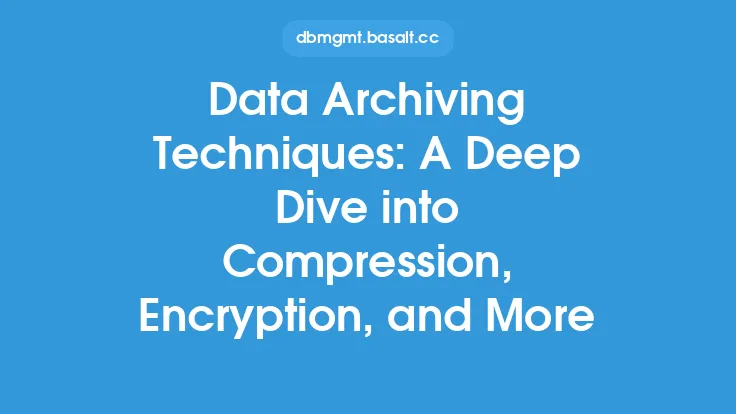Data management is a critical aspect of any organization, and it involves a range of activities, including data creation, storage, retrieval, and disposal. As the volume and complexity of data continue to grow, organizations are faced with the challenge of managing their data in a way that is efficient, secure, and compliant with regulatory requirements. Two key components of data management are data archiving and data governance, which are often viewed as separate entities but are, in fact, closely intertwined. A holistic approach to data management that incorporates both data archiving and data governance is essential for organizations to ensure that their data is properly managed and protected.
Introduction to Data Archiving
Data archiving is the process of moving data that is no longer actively used to a separate storage device or system, where it can be retained for a longer period. This process helps to free up space on primary storage systems, reduce the cost of storage, and improve data management. Data archiving is not the same as data backup, although the two terms are often used interchangeably. Data backup involves creating a copy of data to prevent data loss in case of a disaster or system failure, whereas data archiving involves moving data to a separate storage system for long-term retention. Data archiving is an essential component of data management, as it helps to ensure that data is properly retained and protected, and that it can be retrieved and used as needed.
Introduction to Data Governance
Data governance refers to the set of policies, procedures, and standards that an organization uses to manage its data. It involves defining the roles and responsibilities of individuals and teams, establishing data management policies and procedures, and ensuring that data is properly protected and secured. Data governance is a critical component of data management, as it helps to ensure that data is accurate, complete, and consistent, and that it is properly protected and secured. Data governance also involves ensuring that data is compliant with regulatory requirements, such as data protection laws and industry standards. Effective data governance requires a clear understanding of an organization's data assets, as well as the policies and procedures that are in place to manage them.
The Relationship Between Data Archiving and Data Governance
Data archiving and data governance are closely intertwined, and a holistic approach to data management requires that both components be considered together. Data archiving is a key component of data governance, as it helps to ensure that data is properly retained and protected. Data governance, on the other hand, provides the framework and policies that guide data archiving activities. For example, data governance policies may dictate how long data should be retained, how it should be stored, and who should have access to it. By considering data archiving and data governance together, organizations can ensure that their data is properly managed and protected, and that it is compliant with regulatory requirements.
Technical Considerations for Data Archiving and Data Governance
From a technical perspective, data archiving and data governance require a range of tools and technologies. Data archiving typically involves the use of specialized storage systems, such as tape or disk-based systems, that are designed for long-term data retention. These systems often include features such as data compression, encryption, and deduplication, which help to reduce the cost of storage and improve data management. Data governance, on the other hand, requires a range of tools and technologies, including data management software, data quality tools, and data security systems. These tools help to ensure that data is accurate, complete, and consistent, and that it is properly protected and secured. Effective data archiving and data governance also require a clear understanding of an organization's data assets, as well as the policies and procedures that are in place to manage them.
Best Practices for Implementing Data Archiving and Data Governance
Implementing a holistic approach to data management that incorporates both data archiving and data governance requires a range of best practices. First, organizations should develop a clear understanding of their data assets, including what data they have, where it is stored, and how it is used. This requires a data inventory, which involves cataloging and classifying data assets, as well as identifying the policies and procedures that are in place to manage them. Next, organizations should develop a data governance framework, which includes policies and procedures for data management, data quality, and data security. This framework should also include guidelines for data archiving, including how long data should be retained, how it should be stored, and who should have access to it. Finally, organizations should implement a range of tools and technologies to support data archiving and data governance, including data management software, data quality tools, and data security systems.
Conclusion
In conclusion, data archiving and data governance are two critical components of data management that are often viewed as separate entities but are, in fact, closely intertwined. A holistic approach to data management that incorporates both data archiving and data governance is essential for organizations to ensure that their data is properly managed and protected. By considering data archiving and data governance together, organizations can ensure that their data is accurate, complete, and consistent, and that it is properly protected and secured. Effective data archiving and data governance require a range of technical considerations, including specialized storage systems, data management software, and data security systems. By following best practices for implementing data archiving and data governance, organizations can ensure that their data is properly managed and protected, and that it is compliant with regulatory requirements.
